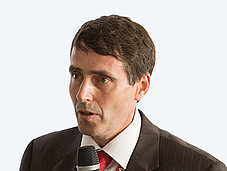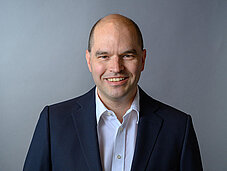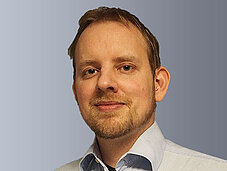
Strength Assessment Concepts for Welded Joints

This training explains and classifies all the important concepts needed to determine the strength and life cycle of welded components. This training is offered as a 3-day course.
Duration
3 days
Prerequisites
Basic knowledge of Ansys Mechanical
Software used
Ansys Mechanical, FKM inside Ansys
- Knowing the influences of welding procedures on strength, fatigue, and endurance
- Learning the particulars of nominal, structural, and notch stress concepts
- Assessing concept-compliant implementation for determination of stresses
- Understanding the relationship between structure, seam quality, and component strength
Description
In mechanical engineering and steel construction, welded components are indispensable. The strength behavior of welds depends on their base material, which requires separate verifications. The operational strength and life cycle of dynamically loaded welded structures often depend on weld transitions. Our training provides a practical introduction to the topic. It covers the theoretical fundamentals and deepens them through discussions and simulation exercises in Ansys Mechanical.
You will gain an understanding of the relationship between structure, seam quality, and component strength. Moreover, you will learn about the manufacturing influences of welding procedures and post-processing on strength and life cycle. We will examine the special features of nominal, structural, and notch stress concepts and their use in various directives such as IIW and FKM. After the training, you will be able to assess the concept-compliant implementation for the numerical determination of stresses and will know more about guidelines in steel working, the railway sector, and for pressurized containers.
This is an expert course for design computational, and test engineers with basic knowledge in Ansys Mechanical. Feel free to share your own experience and discuss the design and safety verification of the welded components with the instructor and other participants.
Detailed agenda for this 3-day training
Day 1
01 Introduction to the theory of assessment approaches
- Fundamental aspects of ongoing damage processes
- Characteristics of fatigue curves
- Scatter of fatigue strength data
- Influencing factors on fatigue strength
- Design code based approaches
- Multi-axial stresses
- Damage accumulation
02 Advanced principles of nominal and structural stress approaches
- Concepts at a glance
- Nominal stress approach
- Nominal stress in regulations: DSV1612, DIN 15018, EC3/IIW guideline
- Structural stress approach
- Hot-spot extrapolation method
- Haibach method
- Model-based structural stress approach (CAB)
03 Advanced principles of notch and crack propagation approaches
- Notch stress approach
- Fictitious equivalent radius for weld modeling
- Notch stress approach variant R1MS
- Crack propagation concept: fundamentals and evaluation approach
- Determination of the stress intensity factor
- Elastoplastic crack propagation law
04 Fatigue strength assessment for seam-welded joints with post weld treatment
- General considerations
- The technological aspects of post weld treatment
- Evaluation option according to synthetic fatigue curves
- Assessment option according to the local strain approach
- Fracture mechanics approach
Day 2
05 Overview of the implementation of theory in simulation
- S’approprier les termes et définitions
- Comprendre le concept de singularités
- Apprendre à mettre en œuvre des modélisations conforment au concept
06 Strength verification of welds as per FKM
- Theory in accordance with FKM 2012
- Verification with nominal stresses and local stresses
- Operational strength
07 Nominal stress concept
- Verification with beam model
- Verification with shell model
- Verification with volume model and contact evaluation
- Verification with volume model and direct stress evaluation
- Fatigue verification in accordance with FKM with nominal stresses
08 Structural stress concepts
- Seam modeling
- Verification with extrapolation method (Hot-Spot)
- Verification in accordance with Haibach
- Verification with internal linearization (ASME)
- Verification with CAB
- Fatigue verification in accordance with FKM with structure stresses
Day 3
09 Notch stress concept
- FE modeling with submodel technology
- Verification of seams welded by laser beam
- Fatigue verification in accordance with FKM with notch stresses
10 Structural engineering verification of welds as per FKM
- Theory in accordance with FKM 2012
- Static verification with nominal, structural, and notch stress
- Elastic-plastic simulation for determination of the plastic stress concentration factor
11 Comparison of FKM with other sets of standards
- Rail construction DVS 1612
- Pressure vessel EN13445-3
- Steel construction Eurocode DIN EN 1993-1-1
- Relationship between strength, structure, and seam quality
12 Simulation solutions for weld evaluation: concepts, tools and workflows
- Simulative evaluation of welds
- Software solutions from various manufacturers
- FKM Weld inside Ansys
- Exercise: Verification workflow based on available FEM results
Your Trainers

Dr.-Ing. Jürgen Rudolph

Klaus-Dieter Schönborn

Florian Mailänder
Placement in the CADFEM Learning Pathway
Participant data
Additional information
Commentary
Whether eLearning, classroom courses, live online training or customized workshops - together we identify the best option for you.
What CADFEM customers are saying
Do you have questions on the training?
If you book through your university, you will receive a 50% discount on the stated fee on training courses and eLearning courses.
For more information on the validity and how booking with the code ACADEMIC50 works, please visit our page on training for academic users.
Straight after you sign up, an automatic confirmation of receipt will be sent to the email addresses you provided. Once you have successfully verified the data you provided, you will receive your personalized sign-up confirmation, containing further information on course fees, the billing address, etc., by email within two to three working days.
As soon as the minimum number of attendees has been reached, you will receive a final training confirmation containing further information. If you have booked an on-site training, we recommend that you wait until you have received this final confirmation before booking your travel and accommodation.
If the minimum number of attendees is not reached, we reserve the right to cancel the training seven days before it is due to start at the latest. We are happy to inform you on changing your booking to an alternative date. Please note that we accept no liability for hotel or travel bookings that attendees have already made.
Usually the training courses start at 9:00 am and end at 5:00 pm of the respective local time. The actual course times will be stated in the booking confirmation. Please note that, depending on the training host, there may be a possible time shift between your and the provider's local time. Therefore all local times are provided with the valid time shift to Greenwich Mean Time (GMT).




